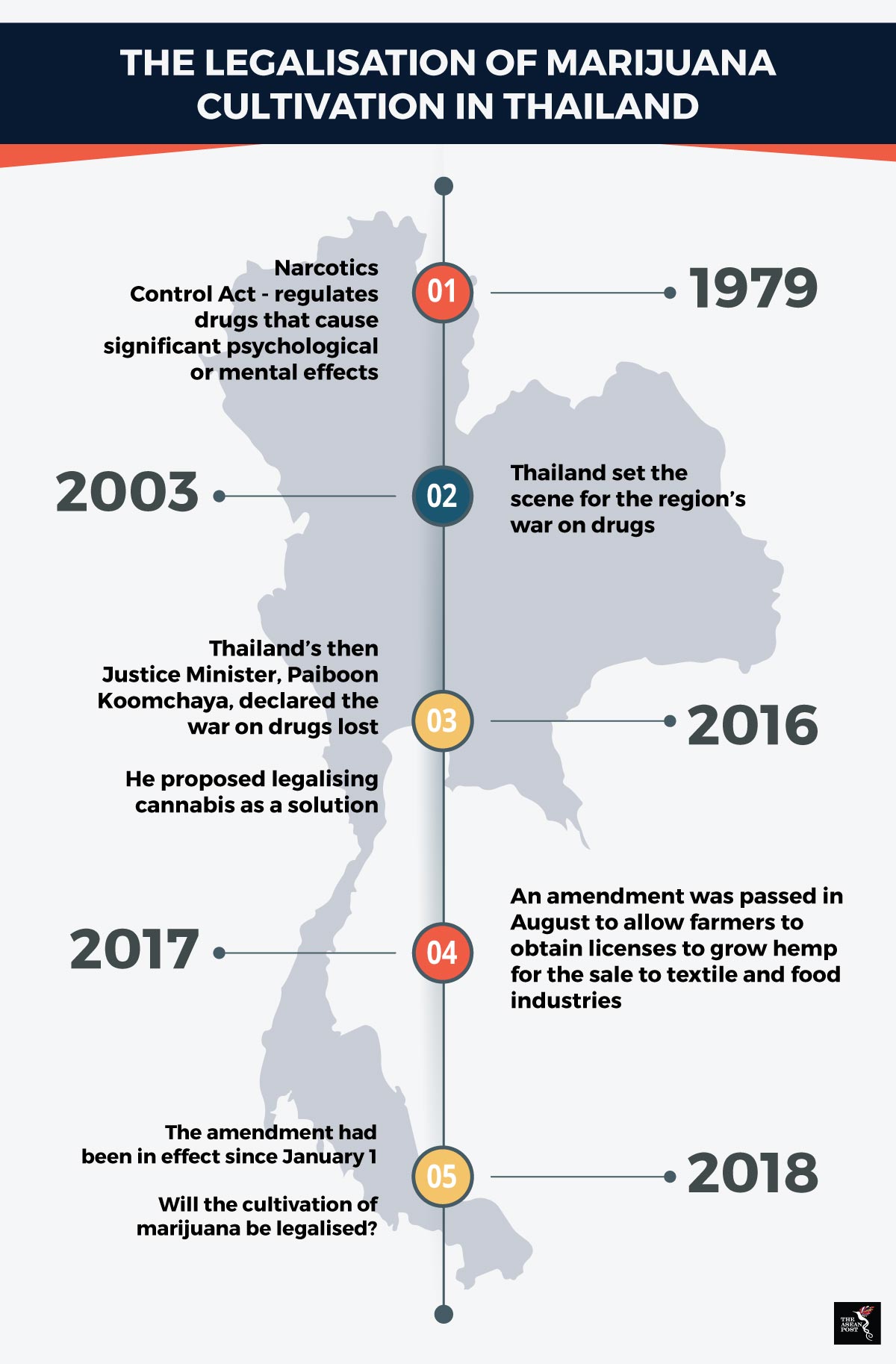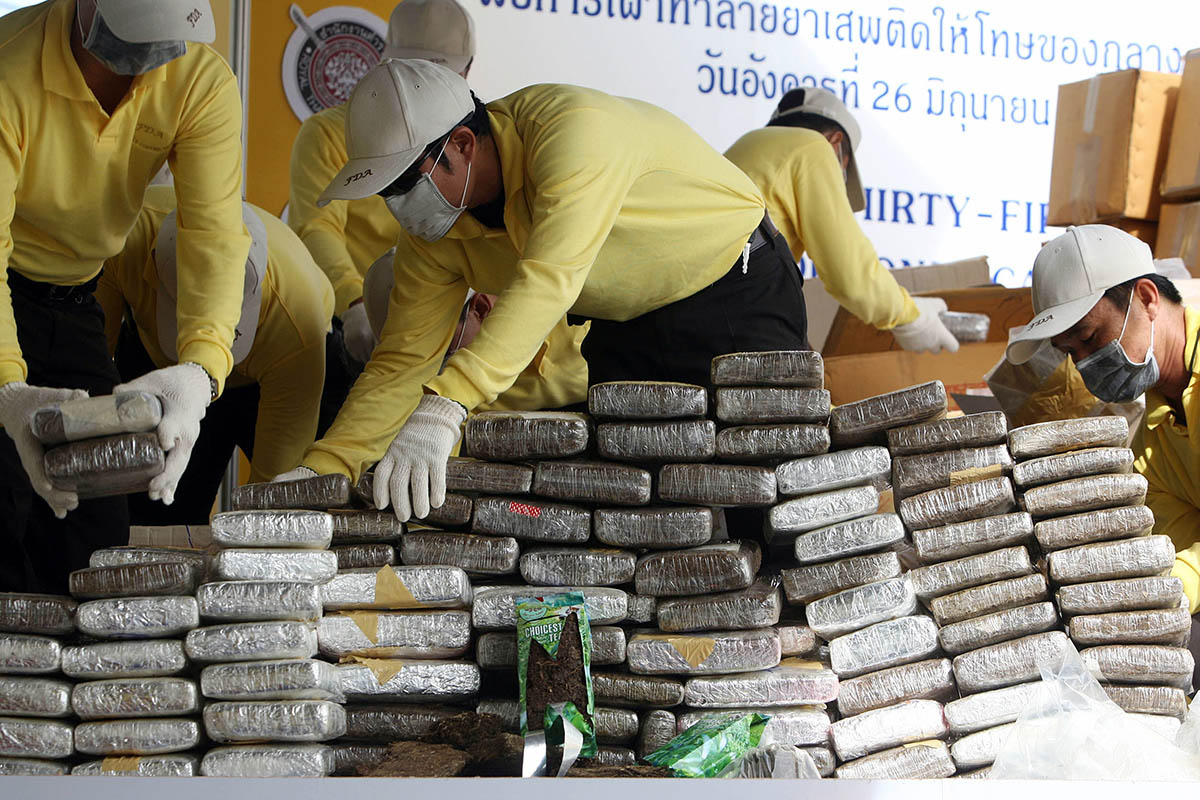In the past couple of weeks there has been talk regarding the legalising of marijuana cultivation for medicinal purposes in Thailand. Based on local news reports, both legislators and state officials have been voicing either their support or disdain towards this issue.
However, until today there has been no confirmation regarding the possible legalising of marijuana cultivation. The only recent developments in this area include a regulation published in the Royal Gazette on 6 January regarding the cultivation of hemp in designated areas for medical research purposes.
According to Thai news outlet, Bangkok Post, it was reported that Deputy Agriculture Minister Wiwat Salayakamthorn had “…agreed with the idea of legalising the cultivation of the narcotic plant purely for medical research and medicinal use.”
The comment came after the National Farmers Council (NFC) had cheered on the government to legalise marijuana cultivation for medical research and use.
Marijuana legalisation in Thailand
Currently, cannabis is illegal in Thailand. Cannabis is classified as a Category 5 narcotic whereby those attempting to gain profit from the cultivation and trade in cannabis can face punishment of up to 15 years imprisonment as well as heavy fines. Anyone in possession of cannabis too can also be penalised with prison terms and fines.
In 2003 Thailand embarked on a war on drugs under the leadership of then Prime Minister Thaksin Shinawatra. The war resulted in the deaths of 2,873 people in one year alone. Convictions related to drugs soared to more than 100,000 cases a year. Unfortunately, those imprisoned were petty drug dealers, children used as drug mules or workers using drugs to help them work. Only in a few cases did the country see major drug dealers being brought to justice.
There were of course, consequences that arose from these extreme measures. For instance, today, the country is home to 10 percent of Southeast Asia’s population and 40 per cent of the region’s prisoners. Meanwhile, drug use in Thailand, is still on the rise.

Thailand’s war on drugs was obviously a failure. In 2016, Paiboon Koomchaya, the then-Justice Minister, declared that the war on drugs was lost. He also proposed that cannabis should be legalised to dissuade users from experimenting with harder drugs such as methamphetamine and cocaine.
The most recent amendment passed in August 2017, came into effect on 1 January 2018 and allows farmers to obtain licenses to grow hemp for sale to the textile and food industries. This has led to some groups including farmers now calling for the official cultivation and use of marijuana for medicinal purposes.
Although widespread crackdowns have occurred, cannabis cultivation can still be found in some provinces in the northeast of Thailand such as in Nakhon Phanom, Mukdahan and Sakhon. Marijuana from Thailand is known globally for its high THC content and typical sativa effects.
Benefits of medical marijuana
In August last year, according to a study published in the journal “Neuropsychopharmacology’, it was suggested that those who smoked marijuana “could have a greatly reduced risk of stroke.”
Researchers from the University of Texas at Dallas found that chronic cannabis users have higher blood flow to the brain and extract more oxygen from cerebral blood flow than nonusers. THC is also known to relax blood vessels. These changes effectively reduce the risk of stroke and blood clots.
Apart from that, the report also stated that a drug called Epidiolex, that contains cannabidiol - an active cannabinoid identified in cannabis, may be on its way to becoming the first of its kind to win approval from the Food and Drug Administration for the treatment of childhood epilepsy.
What will it mean for Southeast Asia’s drug policies?
If the legalising of marijuana were to happen in Thailand, it could also be a game changer for drug policies across Southeast Asia which are some of the harshest in the world. For example, in Singapore, cannabis users risk up to 10 years in prison. In Indonesia, smugglers are executed.
Other than that, the legalising of marijuana cultivation by the Thai government will continue to spark further questions – will society misuse the cultivation for recreational use instead of medicinal purposes?
These underlying issues will remain behind curtains as the process of legalisation for marijuana cultivation in Thailand continues. Only time will tell if the Thai government is able to come up with the right answers.
Recommended stories:
